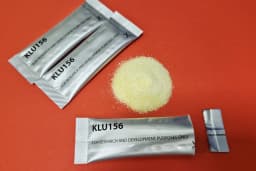Home / Health / South African Firm Pioneers First Homegrown Cholera Vaccine in Africa
South African Firm Pioneers First Homegrown Cholera Vaccine in Africa
12 Nov
Summary
- South African pharmaceutical company Biovac begins trials of cholera drops
- First vaccine created from scratch on the African continent
- Africa relies heavily on imported vaccines, with only 1% made locally

As of November 12th, 2025, a South African pharmaceutical company, Biovac, has begun trials of a new cholera vaccine that could become a significant milestone in vaccine manufacture in Africa. The continent has long been almost wholly reliant on vaccines and drops made elsewhere, with just 1% of routine vaccines used in Africa actually being manufactured on the continent.
The African Union has vowed to increase this proportion to 60% over the next 15 years, recognizing the danger of not having sovereign vaccine factories. This was highlighted during the COVID-19 pandemic, when African nations were left at the back of the queue to access jabs being produced abroad.
The new cholera vaccine being developed by Biovac could help combat a killer infection that affects Africa more than any other part of the world. Cases have surged in recent years, and cholera vaccine stocks have dwindled. If successful, this project would mark a significant step towards Africa's pharmaceutical independence and its ability to address its own health challenges.




